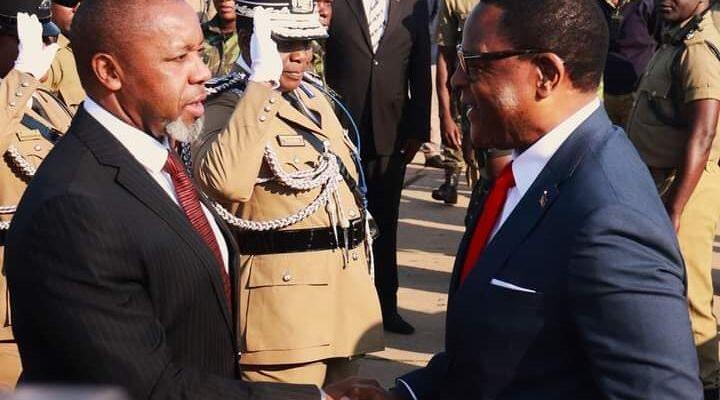
“Free election of masters does not abolish the masters or the slaves”, Herbert Marcuse – German-American philosopher, social critic, and political theorist
A few days ago, I took time off my schedule to listen to the Democratic Progress Party (DPP) press briefing in which they alleged that the ruling Malawi Congress Party (MCP) is busy putting structures in an attempt to rig 2025 general elections. These allegations are very serious and they have to be addressed urgently by responsible authorities.
It is soothing to hear that one culprit implicated in the allegations was caught red-handed with ballot papers in Mangochi and he is likely to appear before the court, DPP further insinuated. My fellow Malawians, it is too early to hear such electoral frauds.
It is not strange that opposition parties always allege that the ruling political party gets involved in elections rigging. I still feel that DPP’s allegations are just a tip of an iceberg as there is substantial evidence that the ruling Malawi Congress Party (MCP) has made all the attempts to stay in power indefinitely. Let’s delve deep into this further.
For starters, the first point of rigging elections is during the registration process. For instance, it was alleged that DPP in the Lhomwe built in the Southern region was registering under-aged citizens in the run up to the 2020 fresh presidential elections.
Unfortunately, we hear that citizens will be allowed to use expired national identification cards for voters registration for the forthcoming General elections. Much as such a motive of using expired national IDs is good because it may not disadvantage eligible citizens from voting, there is also a chance that some disgruntled individuals will exploit the system. For instance, it is possible for a non-citizen to use a National ID of the deceased during the registration period. Obviously, this will compromise the credibility of the elections. If we want to have credible elections in 2025, all stakeholders and key players must be watchful during the registration period.
The second vulnerable point of rigging is during the voting process. I.am talking from experience as I was once a presiding officer at a certain polling station over a decade ago. During the period of voting is the timewhere political monitors play their crucial role. They should ensure that all ballot boxes are empty before voting starts. No eligible voter should be barred from voting. No voter must be influenced to cast their votes. This includes the illiterate, aged and disabled people. From my experience, if not monitored properly,these circumstances could be potential sources of rigging.
Soon after voting, counting should be done in the presence of all political monitors. Results of the poll must be counter-signed by each political monitor who must keep a copy of the results. It is also important for all political parties to make sure that counted votes are securely sealed and kept in safe place in case of future vote recount.
Vote tallying at the district level poses another threat for rigging. All political parties through their monitors must cross-check the figureyto ensure that all votes have been correctly aggregated.
From my own experience, most district commissioners are hired to be presiding returning officers of the general elections at district level. This is why most governments transfer district commissioners to other districts or redeploy them for other governmental duties so that only the partisan ones should handle the elections. By the way, have you wondered why all district commissioners who embezzled COVID 19 funds in 2020 were just temporarily suspended and later recalled back without any punitive action? Your guess is as good as mine.
Once the votes have been tallied at district level, they are sent to the national tally centre. It is the responsibility of each political party to ensure that the results received at national tally centres are not only authentic but also accurately aggregated. Any discrepancies must be urgently resolved.
Crossing-checking the figures at national level is important because human errors can find their way into the system besides the possibility of a hacker modifying the figures in the computers or in transit.
According to the laws of Malawi, it is the Electoral Commission of Malawi that is mandated to manage elections. If there are anomalies with the composition of the commissioners it is important that such complaints are resolved before elections are conducted. It was very pathetic for the court to rule that the DPP commissioners were unprocedurally instituted. Where were the complainants, MCP, before the elections? If MCP had won the elections, would they have lodged such a complaint to the court?
Currently, there are also serious allegations that the Chief Executive Officer of MEC, Mr Andrew Mpesi, is a strong MCP sympathizer. Surprisingly DPP as a party has not lodged any complaint about this. Will DPP and parties lodge their such a complaint after losing the elections?
In conclusion, conducting credible elections is a process. It needs collaboration of various stakeholders including civil society organisations, political parties and patriotic citizens. It is not only the Electoral Commission alone that makes the electoral process a success.
Let me take this opportunity to appeal to all Malawians of good will to contest for presidency in 2025. It is not true that Malawi cannot produce a competent and visionary leader who will right against rampant poverty in Malawi. No matter how free and fair elections can be, voting for masters will never abolish slavery as German Philosopher, Herbert Marcuse opined.














